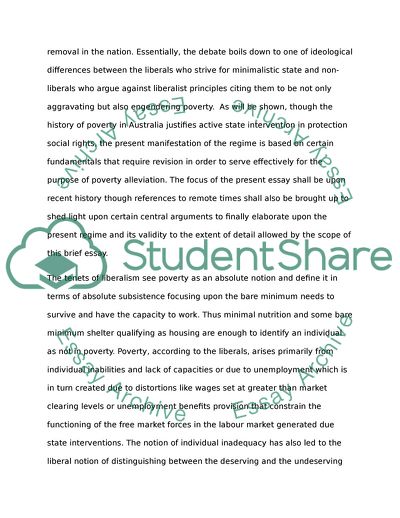Cite this document
(Beneficial Direction of the Welfare State from the Perspective of Coursework Example | Topics and Well Written Essays - 1750 words, n.d.)
Beneficial Direction of the Welfare State from the Perspective of Coursework Example | Topics and Well Written Essays - 1750 words. https://studentshare.org/social-science/1722000-the-history-of-the-poor-in-australia-reveals-the-necessity-of-state-interventions-to-ameliorate-poverty
Beneficial Direction of the Welfare State from the Perspective of Coursework Example | Topics and Well Written Essays - 1750 words. https://studentshare.org/social-science/1722000-the-history-of-the-poor-in-australia-reveals-the-necessity-of-state-interventions-to-ameliorate-poverty
(Beneficial Direction of the Welfare State from the Perspective of Coursework Example | Topics and Well Written Essays - 1750 Words)
Beneficial Direction of the Welfare State from the Perspective of Coursework Example | Topics and Well Written Essays - 1750 Words. https://studentshare.org/social-science/1722000-the-history-of-the-poor-in-australia-reveals-the-necessity-of-state-interventions-to-ameliorate-poverty.
Beneficial Direction of the Welfare State from the Perspective of Coursework Example | Topics and Well Written Essays - 1750 Words. https://studentshare.org/social-science/1722000-the-history-of-the-poor-in-australia-reveals-the-necessity-of-state-interventions-to-ameliorate-poverty.
“Beneficial Direction of the Welfare State from the Perspective of Coursework Example | Topics and Well Written Essays - 1750 Words”. https://studentshare.org/social-science/1722000-the-history-of-the-poor-in-australia-reveals-the-necessity-of-state-interventions-to-ameliorate-poverty.


